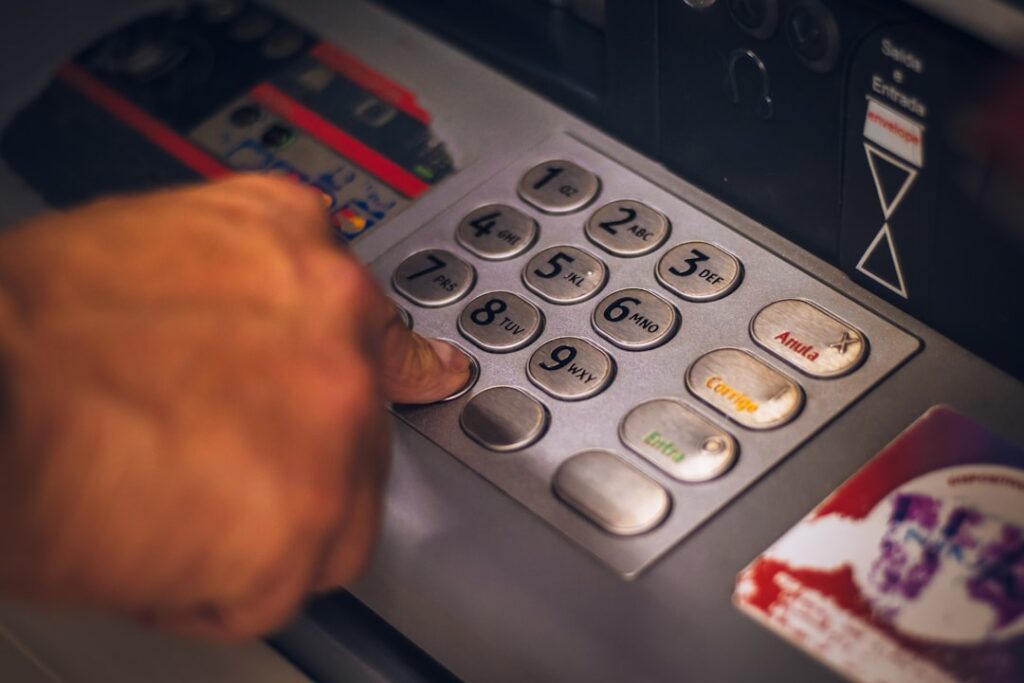Your credit score is a three-digit number that represents your creditworthiness. It is used by lenders to determine your ability to repay a loan or credit card. The most commonly used credit score is the FICO score, which ranges from 300 to 850.
A higher credit score indicates a lower credit risk, making it easier for you to qualify for loans and credit cards with favorable terms and lower interest rates. Your credit score is calculated based on several factors, including your payment history, credit utilization, length of credit history, new credit accounts, and types of credit used. Understanding your credit score is crucial for managing your finances and making informed decisions about borrowing money.
By knowing your credit score, you can take steps to improve it and maintain a healthy financial profile. Monitoring your credit score regularly can also help you detect any errors or fraudulent activity on your credit report, allowing you to take action to correct them.
Key Takeaways
- Your credit score is a numerical representation of your creditworthiness and is used by lenders to determine your credit risk.
- It’s important to regularly check your credit report to ensure that all the information is accurate and up to date.
- If you find any errors on your credit report, it’s crucial to dispute them with the credit bureau to have them corrected.
- Paying your bills on time is essential for maintaining a good credit score and avoiding late fees and negative marks on your credit report.
- Keeping your credit utilization low by not maxing out your credit cards can positively impact your credit score.
- Building a positive credit history takes time and involves responsible credit management and making timely payments.
- Experian offers various tools and resources to help you understand and manage your credit, such as credit monitoring services and educational materials.
Checking Your Credit Report
Why Check Your Credit Report?
Checking your credit report regularly is important for identifying any errors or inaccuracies that could negatively impact your credit score. You are entitled to a free copy of your credit report from each of the three major credit bureaus – Experian, Equifax, and TransUnion – once every 12 months.
Reviewing Your Credit Report
Reviewing your credit report allows you to ensure that all the information is accurate and up to date. If you find any errors, such as accounts that don’t belong to you or incorrect payment statuses, you should dispute them with the credit bureau to have them corrected.
Protecting Your Financial Information
Monitoring your credit report also helps you detect any signs of identity theft or fraudulent activity, allowing you to take immediate action to protect your financial information.
Disputing Errors on Your Credit Report

If you find any errors or inaccuracies on your credit report, it’s important to dispute them with the credit bureau to have them corrected. You can do this by submitting a dispute letter along with any supporting documentation that proves the information is incorrect. The credit bureau is required to investigate the disputed items within 30 days and remove any information that cannot be verified.
Disputing errors on your credit report is essential for maintaining an accurate and up-to-date financial profile. Inaccurate information can negatively impact your credit score and make it difficult for you to qualify for loans or credit cards. By taking the necessary steps to dispute errors on your credit report, you can ensure that lenders have access to reliable information when making decisions about extending credit to you.
If you find any errors or inaccuracies on your credit report, it’s important to dispute them with the credit bureau to have them corrected. You can do this by submitting a dispute letter along with any supporting documentation that proves the information is incorrect. The credit bureau is required to investigate the disputed items within 30 days and remove any information that cannot be verified.
Disputing errors on your credit report is crucial for maintaining an accurate and up-to-date financial profile. Inaccurate information can negatively impact your credit score and make it difficult for you to qualify for loans or credit cards. By taking the necessary steps to dispute errors on your credit report, you can ensure that lenders have access to reliable information when making decisions about extending credit to you.
Paying Your Bills on Time
| Metrics | Data |
|---|---|
| Percentage of bills paid on time | 95% |
| Number of late payments | 5 |
| Number of bills paid | 20 |
| Average days before due date bills are paid | 3 days |
Paying your bills on time is one of the most important factors that contribute to a positive credit score. Late payments can significantly lower your credit score and stay on your credit report for up to seven years. To avoid late payments, it’s important to set up reminders or automatic payments for your bills.
Making timely payments not only helps maintain a good credit score but also saves you from incurring late fees and interest charges. Consistently paying your bills on time demonstrates responsible financial behavior and shows lenders that you are capable of managing debt effectively. It’s important to prioritize paying off high-interest debts first and then focus on other bills.
By staying organized and keeping track of due dates, you can ensure that all your bills are paid on time, ultimately contributing to a positive credit history. Paying your bills on time is one of the most critical factors that contribute to a positive credit score. Late payments can significantly lower your credit score and stay on your credit report for up to seven years.
To avoid late payments, it’s important to set up reminders or automatic payments for your bills. Making timely payments not only helps maintain a good credit score but also saves you from incurring late fees and interest charges. Consistently paying your bills on time demonstrates responsible financial behavior and shows lenders that you are capable of managing debt effectively.
It’s important to prioritize paying off high-interest debts first and then focus on other bills. By staying organized and keeping track of due dates, you can ensure that all your bills are paid on time, ultimately contributing to a positive credit history.
Keeping Your Credit Utilization Low
Credit utilization refers to the amount of available credit that you are using at any given time. It is calculated by dividing the total amount of outstanding balances by the total available credit limits across all of your accounts. Keeping your credit utilization low is important for maintaining a healthy credit score.
Ideally, you should aim to keep your utilization below 30% to demonstrate responsible borrowing behavior. High levels of credit utilization can indicate financial distress and may negatively impact your credit score. To keep your utilization low, consider paying off balances in full each month and avoiding maxing out your credit cards.
Additionally, requesting a higher credit limit or opening new accounts can help lower your overall utilization ratio. By managing your credit utilization effectively, you can improve your chances of qualifying for better loan terms and lower interest rates. Credit utilization refers to the amount of available credit that you are using at any given time.
It is calculated by dividing the total amount of outstanding balances by the total available credit limits across all of your accounts. Keeping your credit utilization low is important for maintaining a healthy credit score. Ideally, you should aim to keep your utilization below 30% to demonstrate responsible borrowing behavior.
High levels of credit utilization can indicate financial distress and may negatively impact your credit score. To keep your utilization low, consider paying off balances in full each month and avoiding maxing out your credit cards. Additionally, requesting a higher credit limit or opening new accounts can help lower your overall utilization ratio.
By managing your credit utilization effectively, you can improve your chances of qualifying for better loan terms and lower interest rates.
Building a Positive Credit History

Key Factors in Building a Positive Credit History
To build a positive credit history, it’s important to make timely payments on all of your accounts, maintain low levels of debt, and avoid opening too many new accounts at once. Consistently demonstrating responsible borrowing behavior can help improve your credit score over time and increase your chances of qualifying for favorable loan terms and lower interest rates.
The Importance of Old Accounts
It’s also important to keep old accounts open as they contribute positively to the length of your credit history. By being proactive about managing your finances and making informed decisions about borrowing money, you can build a strong foundation for a positive credit history.
Long-Term Benefits of a Positive Credit History
By consistently demonstrating responsible borrowing behavior and maintaining a positive credit history, you can increase your chances of qualifying for favorable loan terms and lower interest rates. This can have a significant impact on your long-term financial stability and overall financial well-being.
Using Experian’s Tools and Resources
Experian offers a variety of tools and resources to help consumers manage their finances and improve their credit scores. These include free access to their Experian Credit Report and FICO Score, which allows individuals to monitor their financial profiles regularly and detect any signs of identity theft or fraudulent activity. Experian also provides personalized recommendations for improving one’s credit score based on their individual financial situation.
In addition, Experian offers educational resources such as articles, videos, and interactive tools that provide valuable insights into understanding and managing one’s finances effectively. These resources cover topics such as budgeting, saving money, building good credit habits, and protecting oneself from identity theft. By utilizing Experian’s tools and resources, consumers can take proactive steps towards achieving their financial goals and maintaining a healthy credit profile.
Experian offers a variety of tools and resources to help consumers manage their finances and improve their credit scores. These include free access to their Experian Credit Report and FICO Score, which allows individuals to monitor their financial profiles regularly and detect any signs of identity theft or fraudulent activity. Experian also provides personalized recommendations for improving one’s credit score based on their individual financial situation.
In addition, Experian offers educational resources such as articles, videos, and interactive tools that provide valuable insights into understanding and managing one’s finances effectively. These resources cover topics such as budgeting, saving money, building good credit habits, and protecting oneself from identity theft. By utilizing Experian’s tools and resources, consumers can take proactive steps towards achieving their financial goals and maintaining a healthy credit profile.
If you’re looking to improve your credit score, it’s important to understand how it’s calculated and what factors can impact it. According to a recent article on CashAdvance.Express, having a good credit score can make it easier to qualify for loans and credit cards with favorable terms. By managing your finances responsibly and making timely payments, you can work towards improving your credit score over time. For more information on how credit scores are calculated, check out this Credit Score Article on CashAdvance.Express.
FAQs
What is a credit score?
A credit score is a numerical representation of an individual’s creditworthiness, based on their credit history and financial behavior. Lenders use credit scores to assess the risk of lending money to a particular individual.
What is Experian?
Experian is a consumer credit reporting agency that collects and aggregates information on individuals’ credit history and provides credit reports and credit scores to lenders and individuals.
How is a credit score calculated by Experian?
Experian calculates credit scores based on several factors, including payment history, amounts owed, length of credit history, new credit, and types of credit used. These factors are used to generate a three-digit credit score, typically ranging from 300 to 850.
Why is a credit score important?
A credit score is important because it is used by lenders to determine an individual’s creditworthiness when applying for loans, credit cards, or other financial products. A higher credit score can result in better loan terms and lower interest rates.
How can I check my credit score with Experian?
Individuals can check their credit score with Experian by requesting a free credit report once a year through AnnualCreditReport.com, or by signing up for Experian’s credit monitoring services for regular access to their credit score and report.
Can my credit score change over time?
Yes, credit scores can change over time based on an individual’s financial behavior, such as making on-time payments, reducing debt, or applying for new credit. It’s important to regularly monitor and manage your credit to maintain or improve your credit score.












